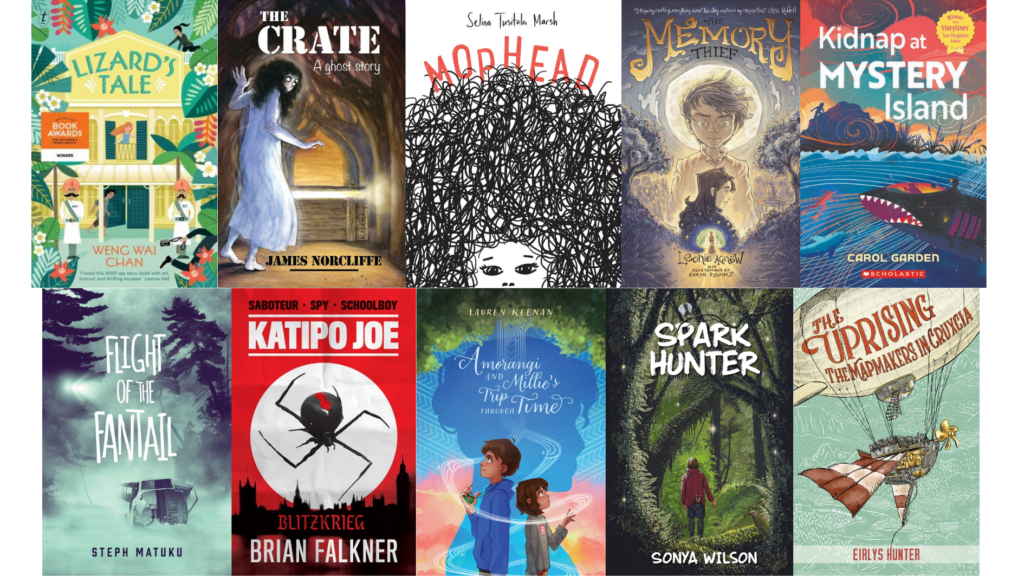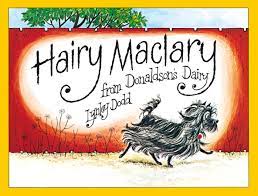In the wake of various opinions about the state of children’s literature, Hannah Marshall tells us why we should be centring the voices of young people and moving on from the tired rhetoric of PC madness and literary elitism.

Two controversies have struck the NZ kidlit community since The Sapling’s hiatus. Back in July, children’s classic Hairy Maclary came under fire for its lack of gender diversity, a critique that wasn’t met too kindly by the beloved book’s author, Dame Lynley Dodd. In September, Kate De Goldi and Susan Paris’s RNZ interview ruffled feathers as they warned about an apparent ‘reading crisis’ amongst young Kiwis and a lack of variety of middle-grade books.
The Hairy Maclary incident points to a changing tide in the kidlit world. There’s a growing awareness of the genre’s shortcomings, and Hairy Maclary’s all-male cast is a reminder that children’s books have long been dominated by narratives that privilege a very small group of society — and exclude everyone else. Hairy Maclary is just one of many books in the kidlit canon that show us how we can do better.

But to really create a diverse and inclusive catalogue of children’s literature, centre stage needs to be given to those whose voices are long overdue to be heard. And, in kidlit, those are the voices of the young people themselves.
Kate De Goldi and Susan Paris’s interview is a prime example of what happens when young people’s voices are neglected in the conversation. They warn that around age nine is the ‘danger zone’ where kids’ reading habits drop off. To keep kids reading, they say, we need to provide a better variety for the middle-grade audience: in their eyes, New Zealand’s middle-grade offerings aren’t doing the job, our selection wrought with ‘fart books’ and ‘books about native birds.’
Not only is this comment a slap in the face to the many amazing Kiwi middle-grade writers and books out there, but it also reflects a viewpoint achingly out of touch with what’s really happening with kids and their reading patterns. It’s definitely true that young Kiwis’ literacy rates are in crisis: an alarming report published by The Education Hub in March this year tells us that kids’ reading and writing performances have been in steady decline since 2009, and that only 63% of Year 4 students are ‘at or above’ expected levels of reading proficiency — and almost a third of ten-year-olds aren’t achieving anywhere near expected levels at all. De Goldi and Paris are rightly concerned about the decline in children’s reading abilities, and it seems that the middle-grade years is the age where reading really goes downhill.
But the reasons behind this isn’t because of a dearth of good-quality books. It’s a broken and flawed education system that’s failing our kids, not the books they read. The education system’s lack of a national literacy strategy, ongoing systemic racism, and the continual disadvantage of low-decile schools are all cited by The Education Hub’s report as the biggest problems — not a literary canon overwhelmed with farts and birds. In fact, New Zealand’s selection of middle-grade stories is bountiful and thriving, helmed by authors both new and established. Steph Matuku, Brian Falkner, Tania Roxborogh, David Hill, Fleur Beale, Fifi Colston, and Selina Tusitala Marsh are just a few of many writers producing dazzling and diverse books for young audiences.

In other words, our reading was restricted to whatever society had deemed was worthy enough of being read
The belief that Kiwi kids need to be reading ‘better’ books reeks of literary snobbery and is exactly the kind of attitude that turns so many young people off reading. Contrary to De Goldi and Paris’s claims, my friends and I can attest that our middle-grade years were when we read the most. What we valued most about reading at this age was the freedom that we had. We could read whatever we wanted without the pressure of grades and assessments or expectations around what we should be reading. We could explore, develop, and discover what we liked — and what we didn’t. But in high school, that freedom was lost once books became something to study instead of something to enjoy. Books were chosen for us instead of chosen by us; and most of these books were those considered ‘essential’ by the powers of high society (Pride and Prejudice, anyone?). In other words, our reading was restricted to whatever society had deemed was worthy enough of being read, and these ideas are informed by an overwhelmingly privileged, tunnel-visioned, and Westernised view. As a result, we drudged through books which often contain narratives wrought with stereotypes, misconceptions, and sometimes outright prejudices. These books are irrelevant, uninclusive, and unengaging, and certainly not what any of us need or want from reading.
The advent of the internet has empowered kids to speak up and engage with what’s important to them, and the online world provides myriad opportunities for youth to read beyond the realm of paperbacks and print.
De Goldi and Paris’s mission to push kids into reading ‘better’ books echoes this elitist ideology. Good literature is highly subjective, and while I’m all for encouraging a broad reading diet, a healthy reading diet is a diverse one, where our young people’s needs, wants, and lived experiences are at the centre. Kids deserve to have the freedom to explore what they enjoy and to see themselves reflected on the page. Diverse books celebrate the broad range of cultures, ethnicities, religions, genders, sexualities, and abilities out there in society, which builds understanding of both ourselves and others, and ultimately better reflects our world. That’s why it’s crucial for writers and publishers to continually connect and communicate with young readers; not assume what it is that they should be reading. And if kids would rather read books about native birds than poetry and the classics, is that a problem? Crafting inclusive and authentic stories that represent our young people is essential to keeping them engaged in reading, no matter what genre, style, or form these narratives take. The advent of the internet has empowered kids to speak up and engage with what’s important to them, and the online world provides myriad opportunities for youth to read beyond the realm of paperbacks and print. Whether it be on webszines, blogs, fanfiction sites, or social media, the online environment is valuable for opening up dialogues between writers and readers and improving accessibility for the way stories are written, produced, and disseminated: a point that is sorely overlooked by De Goldi and Paris when they tell us that kids aren’t getting enough variety.
Diversity is so important for all readers, because it allows us to feel seen, heard, and valued; but kids need to be at the core of this discussion.
Kate De Goldi and Susan Paris embody beliefs that hinder kidlit from much-needed growth; and while Lynley Dodd thinks that critiques of Hairy Maclary show that ‘people are just too politically correct,’ it’s necessary to acknowledge that diversity is lacking in kidlit, and that things need to change. Diversity is so important for all readers, because it allows us to feel seen, heard, and valued; but kids need to be at the core of this discussion. Lynley Dodd’s lament that diversity has spiralled into virtue-signalling, PC madness shows a resistance from some writers to welcome inclusivity, and Kate De Goldi and Susan Paris’s views on the literary environment and what kids want from reading is stuck in an elitist echo chamber. These controversies show that within the industry, there is still a long way to go in centering the wants, needs and lived experiences of kids. Let’s write books that represent and celebrate our kids. All of them. That’s what kidlit is about.
Editors’ note: The Reckoning is a regular column where children’s literature experts air their thoughts, views and grievances. They’re not necessarily the views of the editors or our readers. We would love to hear your response to any of The Reckonings – join in the discussion over on Facebook.

Hannah Marshall is a reader, writer, and advocate for New Zealand books from Wellington. She has a Bachelor of Arts in Media Studies from Te Herenga Waka—Victoria University of Wellington, and she is currently doing her Master of Arts in Creative Writing at VUW's International Institute of Modern Letters. Her debut YA novel, It's a Bit More Complicated Than That, is being published by Allen & Unwin in 2025.



